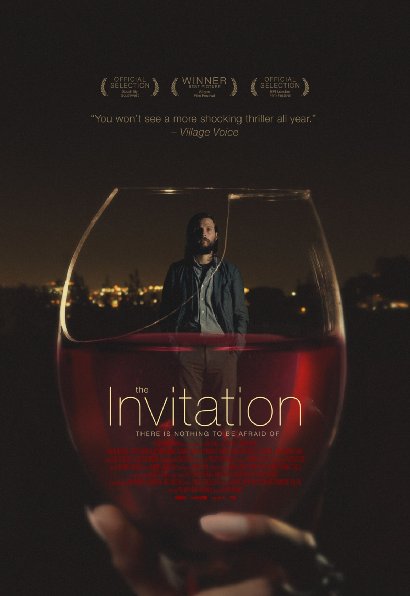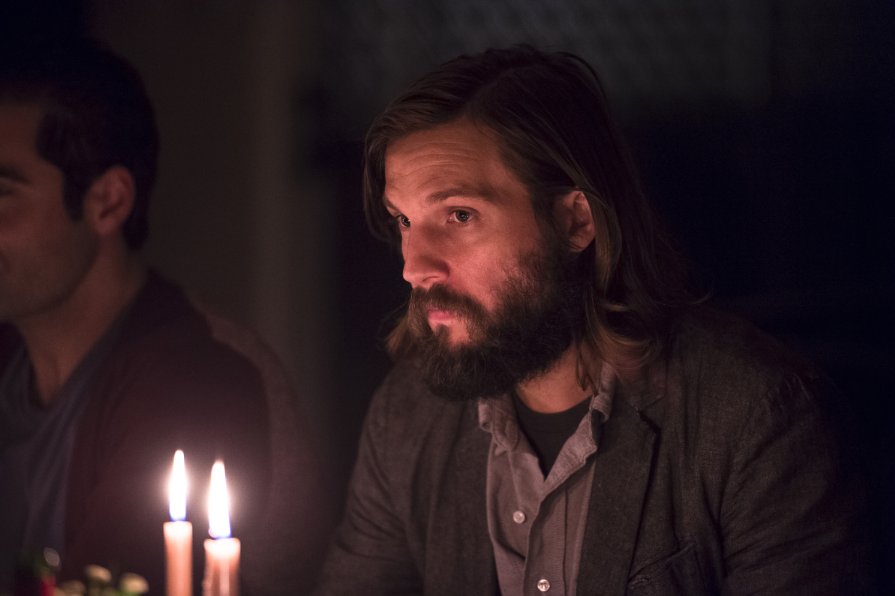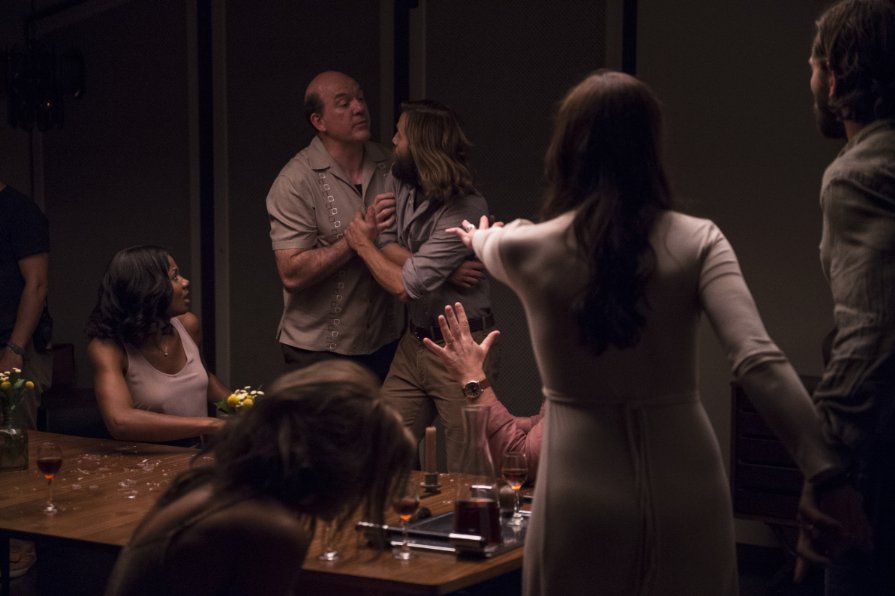Dinner Parties Are Murder
DIRECTOR: KARYAN KUSAMA/2016
If you’ve ever dreaded having to attend a dinner party, The Invitation provides a stiff dose of paranoia for  your anti-social leanings.
your anti-social leanings.
Logan-Marshall Green hardly looks himself as leading man Will, covered in long hair and a shaggy beard after two years of mourning. He brings his new girlfriend to a dinner party at his former home, where his ex-wife Eden (Tammy Blanchard, channeling a Liv-Tyler-as-Middle-Earth-elf spiritual vibe) has brought their old circle of friends back together after a long absence. The party should be a happy reunion for everyone, but Will grows suspicious that Eden and her new husband David (Michiel Huisman, the new Daario on Game of Thrones) are up to something sinister.
It’s classic suspense, done especially well because Will could be the hero we’re rooting for, or a grief-wrecked jerk who can’t hold it in long enough to be nice for one evening. Either way, he never comes across as less than sympathetic, nor does anyone else. Rare is a story of this genre with characters you actually like, which makes the mounting dread building around them really mean something.
Writers Phil Hay and Matt Manfredi and director Karyn Kusama show their chops in multiple ways throughout the story, but perhaps most impressive is how they deftly handle a dozen characters without losing sight of anyone. Actors move in-and-out of scenes within the single setting, passing the torch of the camera’s attention to each other as their conversations weave back and forth from intimate to chatty to heartbreaking. The motivation never feels forced, and no one seems to be hanging around waiting for something to do (which, honestly, puts it a step above most parties I’ve ever been to). As a highlight in the cast, John Carroll Lynch shows up to lend his creepy vibe from Zodiac, as the guest everyone wishes would go away, but no one’s brave enough to tell off.
As a highlight in the cast, John Carroll Lynch shows up to lend his creepy vibe from Zodiac, as the guest everyone wishes would go away, but no one’s brave enough to tell off.
Writers Phil Hay and Matt Manfredi and director Karyn Kusama show their chops in multiple ways throughout the story, but perhaps most impressive is how they deftly handle a dozen characters without losing sight of anyone.
The movie’s exquisitely shot, with a warm, rich look that accentuates the luxury of the house in the hills where the story takes place, in contrast to the cold, creeping anxiety that grows as the night continues. Kusama’s camera finds subtly-observed details to fill out the setting—the decorative bars on the windows, the feet of guests as they alight up the stairs to dinner, a red lantern hanging in a lush backyard.
The film delivers on its genre’s entertainment expectations, but also lands authentic emotional punches. As they navigate the pain that’s separated them, the dinner guests repeatedly affirm their affection for one another. Amidst all the thrills and terror, the film seems to hint that the true answer to its characters’ troubles is love.

